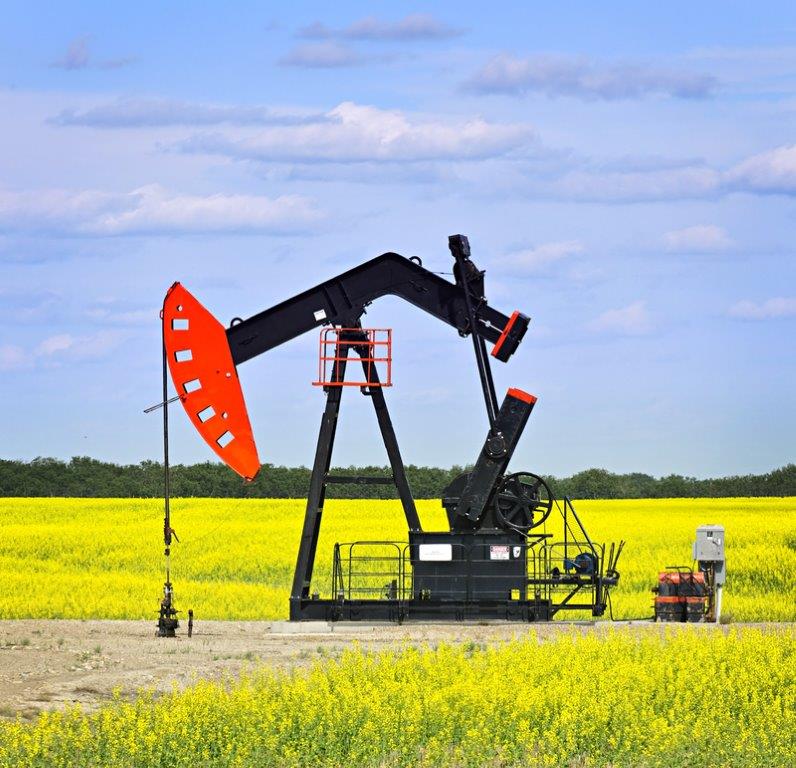With Administrator Pruitt’s EPA in the earliest stages, some of the environmental enforcement action may be moving to the states. The proposed changes in New Mexico, as seen in the article below, are emblematic of conversations going on in legislatures and regulatory agencies across the country. As companies assess the enforcement landscape, and their own compliance readiness, it is increasingly important to look not just at EPA’s approach, but also that of emboldened states and an energized environmental NGO community. Here’s the article from New Mexico portending the future:
Bill would allow regulators to fine oil and gas companies for spills
By Laura Paskus
In recent years, spills of crude oil, natural gas and drilling wastewater have increased even more rapidly than production has grown. Yet the state of New Mexico doesn’t fine or sanction oil and gas companies that pollute water.
A bill before the state legislature seeks to change that.
If passed, the bill wouldn’t create new rules or regulations. Instead, it would allow the state’s Oil Conservation Division (OCD) to impose penalties on polluting companies. Senate Bill 307 would increase fines not updated since the Legislature passed the Oil and Gas Act in 1935. It would also bring the state into compliance with an agreement established under the federal Safe Drinking Water Act, in which the U.S. Environmental Protection Agency authorized New Mexico to manage its own underground injection control program. That allows New Mexico to issue permits for underground injections, examples of which include when operators inject liquids, gases and chemicals underground to boost oil production and when companies dispose of wastewater, including from hydraulic fracturing, underground.
But even as the bill heads into its first committee meeting on Tuesday, silence on the issue from state and federal regulators makes it tricky to know exactly what any of this means for the state agency, oil and gas companies and New Mexico’s communities.
Officials with both state and federal agencies—the New Mexico Energy, Minerals and Natural Resources Department (EMNRD) and the U.S. Environmental Protection Agency—did not answer questions for this story. As the Trump administration clamps down on EPA employees to answer even basic questions from the press, the administration of Gov. Susana Martinez continues to prevent state employees from publicly discussing the workings of their own agency.
NM’s authority
Sen. Richard Martinez, D-Española, the bill’s sponsor, said it makes no sense that OCD, which is part of the state’s Energy, Minerals and Natural Resources Department, lacks the authority to make industry comply with state law.
“After over 80 years, it’s irresponsible to wait any longer to update the civil penalties for bad actors who break the law,” he said. “Until this point, the status quo rewards bad actors and that needs to end.”
To add to this, New Mexico could see increased federal control if the state doesn’t start enforcing the Oil and Gas Act per their authorities granted by EPA, said Bruce Baizel, energy program director with the Oil and Gas Accountability Project, a part of the environmental nonprofit Earthworks.
Under the Safe Drinking Water Act, EPA can authorize states to take over certain regulatory duties. That agreement between states and the federal government outlines what states must do to remain in charge of the program. “One of those requirements is that you have to be able to assess penalties against violators as a way to ensure compliance,” Baizel said. “If New Mexico doesn’t have that authority at a state level, then it reverts to the federal EPA to manage the program.”
Martinez’ bill, SB 307, would rectify the problem, said Baizel, and also increase transparency. Annually, OCD would have to report penalties against operators to the Legislature and make that information publicly available.
“That way, everybody would have a sense of who’s doing their best and who’s not, as far as operators go,” said Baizel. “That’s just basic good government.”
Given her record on oil and gas regulations in New Mexico, Gov. Susana Martinez is unlikely to sign the bill. Nor is the new presidential administration’s EPA likely to rein in companies that pollute water.
The Trump administration’s pick to head the EPA, Scott Pruitt, is a longtime ally of the industry. As Oklahoma’s attorney general, Pruitt even sent a letter to EPA in 2011 complaining that the agency was overestimating air pollution emissions from oil and gas operations in the state. Pruitt’s letter, as reported by the New York Times in 2014, was actually written by lawyers for Devon Energy Corporation, an oil and gas company. Pruitt’s staff copied the letter on state letterhead, then sent it to the EPA with his signature.
Devon has also supported Martinez, having donated more than $60,000 to her two gubernatorial campaigns. Other top oil and gas donors to Martinez included Mack Energy ($135,400), Me-Tex Oil and Gas ($82,500), Chase Oil ($80,200), Yates Petroleum ($66,400) and Heyco Energy Group ($35,725), according to the National Institute on Money in State Politics, which tracks campaign donations.
Case history
New Mexico’s inability to hold oil and gas companies accountable for spills and accidents traces back many years. But it came to a head when Marbob Energy Corporation sued OCD in 2009, saying the division lacked the authority to assess civil penalties and sanctions against companies. Concho Resources now owns Marbob Energy.
Between 2001 and the lawsuit in 2009, OCD had issued 431 compliance orders and assessed more than $2.4 million in penalties.
The court agreed with Marbob and ruled that OCD should report violations to the New Mexico Office of the Attorney General, which then could sue to collect penalties. From then on, lawsuits would need to be filed in the county where the violation occurred and the state would need to prove that the violation was “knowing” and “willful.”
When handing down their 2009 decision in the Marbob case, New Mexico Supreme Court justices wrote that while they were sympathetic to OCD’s need for greater enforcement authority, the division had to defer to the Legislature. Even though the statutes that created the commission might be dated and “perhaps inadequate to face the contemporary challenges,” they wrote, any changes in authority would have to come from the same legislative body that created the commission.
In 2013, a bill similar to Martinez’ SB 307 was introduced. Then-Attorney General Gary King supported it, saying that proving a pollution violation is knowing and willful—which is a criminal standard—“erects an unreasonably high barrier to civil enforcement.”
Today, the Independent Petroleum Association of New Mexico opposes SB 307 “very strongly,” said executive director Karin Foster. The bill would increase penalties substantially, from $1,000 to $10,000 for each day of violation. “We obviously oppose that,” said Foster.
And she pointed to the Marbob lawsuit as an important reason to oppose the bill.
“The New Mexico Supreme Court said that OCD basically doesn’t have the resources or the technical ability to do a case fairly, and the statute gives the [attorney general] the authority to go after operators, just like under the Environmental Improvement Act,” she said. “OCD has technical expertise when drilling the well, but when it comes to due process, putting a case together and meeting the knowing and willful standard, it doesn’t know what it’s doing.”
Meanwhile, the Attorney General’s Office will review any cases OCD refers, according to spokesman James Hallinan.
Since losing the Marbob case in 2009, OCD has yet to refer a single violation to Attorney General Hector Balderas nor his predecessor, Gary King.
Getting a handle on spills
More than a decade ago, a state study showed the existence of about 7,000 cases of soil and water contamination from drilling pits and another 400 cases of groundwater contamination from between the mid-1980s and 2003.
Those numbers prompted Gov. Bill Richardson’s administration to enact a “pit rule” in 2008 that banned unlined waste pits and required “closed-loop” systems when operations were close to water resources or homes. With those systems, operators siphon waste into steel tanks and haul it away instead of burying it onsite.
Industry, including the New Mexico Oil and Gas Association and the Independent Petroleum Association of New Mexico, opposed the new rule. During her 2010 campaign, Martinez promised she’d get rid of it. She also raised more than $1 million from the oil and gas industry, out of a $7.4 million total for her campaign.
Fewer than three years later, the New Mexico Oil Conservation Commission repealed the Richardson-era rule, replacing it with one less “cumbersome” to operators, especially small-scale oil and gas companies.
For her 2014 campaign, Martinez raised $8.5 million, of which more than $2 million came from the oil and gas industry.
That same year, companies reported more than 1,000 spills to OCD. Those included leaks and accidents involving wastewater, crude oil, methane and other materials. Nearly three-quarters of the reports came from Eddy and Lea counties in southeastern New Mexico, where tens of thousands of wells exist. The rest were reported from San Juan County.
And still, the number of oil, natural gas and produced water spills continued to increase in New Mexico.
According to a Legislative Finance Committee report, both the number and volume of spills “increased dramatically” in 2015—outstripping the bump in production. While production grew by 21 percent, the number of spills increased by 43 percent and the volume of spills increased by 61 percent.
EMNRD offered two possible explanations, according to the LFC report. First, new drilling and production technology caused a higher volume of oil and waste to be present at the surface than in previous years. And secondly, New Mexico’s aging infrastructure, including pipelines, storage tanks and production facilities, were more susceptible to leaks and other problems.
Staying quiet
NM Political Report reached out on numerous occasions to EMNRD Secretary Ken McQueen as well as the department’s communications director. The state agency ignored those requests for information, neglecting to even answer if the department supports SB 307. McQueen, who retired last year from WPX Energy, did mistakenly reply to one of this reporter’s emails, appearing to instruct an aide to say he was tied up at the Legislature.
Calls and emails to EPA officials in both the regional office in Dallas and the Washington D.C. office also yielded no information. One official responded that the agency “does not comment or speculate on pending state legislation.” Follow-up emails, clarifying that this reporter was not seeking comment on the legislation, only the consequences of New Mexico violating its primacy agreement, were not answered.
Since Feb. 2, NM Political Report has also requested comment from the New Mexico Oil and Gas Association, which is currently directed by the immediate past Secretary of the New Mexico Environment Department. In a departure from past practices, a spokesman for the trade association did not answer if it would support or oppose the bill nor explain how it might affect New Mexico companies.




